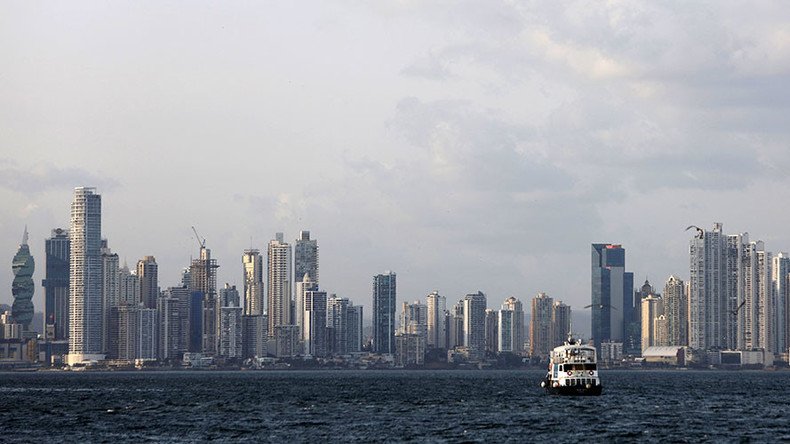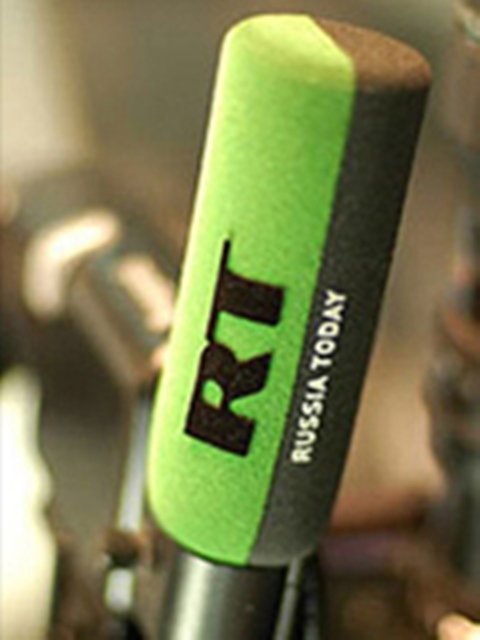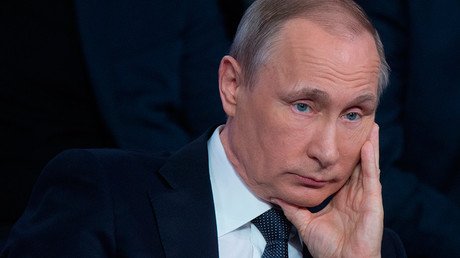Tricksters Of Panama: Mainstream media's latest attacks on RT

Sections of the mainstream media are upset because RT’s coverage of the Panama Papers scandal hasn’t been primarily focused on Vladimir Putin. Hardly shocking, considering Putin wasn’t mentioned, even once, in the leaked records.
But just as unsurprisingly, that hasn’t stopped many prominent Western news outlets from trying their hardest to not only connect Putin to the scandal, but to give the impression that he's the main, if not the only, subject of events. Take Britain’s Guardian, for instance, which broke the original story on Sunday last.
The Panama Papers leak was gigantic, with much to cover. Nevertheless, you’d imagine that the most interesting angle for British readers was surely the juicy news that David Cameron's father had offshore accounts. That supposition was proven later in the week, when this became the number one political issue on UK social media. Not only the Camerons were implicated – Conservative Party Members of Parliament and party donors were mentioned too.
Incredibly, more than half the 300,000 companies that Panamanian law firm Mossack Fonsenca acted for were registered in British-administered tax havens, as well as in the UK itself, according to the International Consortium of Investigative Journalism.
Another possible splash could have focused on how Ukraine’s Oligarch President, Petro Poroshenko, was caught red-handed in his dealings. After all, Ukraine has received tons of aid from UK taxpayers and people have a right to know about the activities of a regime they help to bankroll. That said, astute media observers are fully aware that criticism of the Kiev government, now matter how legitimate, is practically verboten in the UK press, for reasons best known to themselves.
The Putin Obsession
So, the Guardian decided to look for a different whipping boy. And guess who they chose? Putin. It was the Russian President’s face that stared out from their front page on Monday morning. The same person who was not named in any of the documents. Not only that, none of his family were mentioned either. Thus, as the story broke around the world on Sunday night, it appeared that Putin was the main transgressor. Cameron-focused stories didn’t gain serious traction until much later in the drama.
In fact, for the majority of British papers, Putin was THE story of the first several hours of the Panama info dump, utterly dominating the first wave of coverage. His name and face was all over UK front pages.
Bizarrely, RT was then attacked for not hysterically reporting on Putin’s central role in the Panama Papers scandal.Which wasn’t actually really a topic at all. Instead, we reported the actual facts of the story. Take the International () Business Times, for example. They had a former Moscow Times journo, Howard Amos, alleging that “RT, carried a brief report on the leak Monday on its homepage, with no direct mention of a connection to Putin.” In reality, we covered the disclosures in great detail, all week (more on that below). And there was no actual connection to Putin in the release, so Amos’ charge is incongruous.
Down under, the Sydney Morning Herald claimed that an RT article “reads (sic) like a comic” because it pointed out that, in relation to the Panama Papers, the UK media mentioned Putin three times more often than Cameron. This is not an opinion, it’s a fact. The same piece also carried direct quotes from Dmitry Peskov, Putin’s Press Secretary.
A Global Trend
It wasn’t only anglophone news services. Outlets as far away as Switzerland’s Tages Anzeiger, Sweden’s Expressen and Argentina’s Clarin were beating a similar drum. Not to be outdone, America’s Gawker got in on the act. One of their writers, Marina Galperina, essentially accused RT of parroting Peskov’s “Putinophobia” term as if it were a new catchphrase of some sort, when RT simply carried the term as a quote from Peskov in a news report about his comments.
If you didn’t know better, you would have believed that RT had tried to bury the story altogether. This isn’t just false – the most superficial skimming of RT’s on-air broadcasts or a basic search of rt.com reveals just how far the reality is from the MSM’s wishful thinking. We covered the leaks, and the media’s reaction to them extensively. That includes articles on our Russian website as well as our English-language platforms.
RT also covered the Panama Papers on TV in English, and on Russian-language online video portal too.
As the story developed over the weekend, we provided a live video feed of the massive London protest on Saturday, which centered on calls for David Cameron to resign. The BBC’s home page made no reference to it at all on Saturday. The march was carried, later in the day, on an inside section.
😱Shock horror‼@BBCNews discovers at 4pm that some nasty people think 4th generation SoB &tax evader is a tax evader pic.twitter.com/jE0oChy7HV
— John Delacour (@JohnDelacour) April 9, 2016
It speaks volumes about the current state of the UK media when a foreign broadcaster becomes a major source for coverage of a demonstration centered on possible corruption among the domestic elite, while the homegrown BBC backs off.
Curiously, many of the usual suspects who spend their days lambasting RT also aimed their fire at Wikileaks last week.
#wikileaks brought to you by #FSB &#RussiaTodayhttps://t.co/iUpxbdH9KA
— Reuf Bajrovic (@RBajrovic) April 6, 2016
@RussiawithoutBS And again, @RT_com parasitizing on other people's actual work which it simultaneously disses as info attack against Russia.
— Alexey Kovalev (@Alexey__Kovalev) April 6, 2016
Wikileaks crime? Pointing out that Putin attack stories were led by an organization funded by the US government.
US govt funded #PanamaPapers attack story on Putin via USAID. Some good journalists but no model for integrity. pic.twitter.com/5MnZbB6Zwz
— WikiLeaks (@wikileaks) April 6, 2016
Doubtless, if the Russian state was backing “investigative” groups that were smearing President Obama, the same individuals would have a totally different reaction. Incidentally, Wikileaks itself clarified that the group believed that "claims that Panama Papers (sic) themselves are a 'plot' against Russia are nonsense."
Claims that #PanamaPapers themselves are a 'plot' against Russia are nonsense. However hoarding, DC organization & USAID money tilt coverage
— WikiLeaks (@wikileaks) April 6, 2016
The Panama Papers was as much a media story as a financial and corruption tale. That was reflected in RT’s coverage. Yet, the mainstream media seemed shocked that RT’s reporting on the Panama Papers, which didn’t mention Putin even once, was not focused on Putin.
The statements, views and opinions expressed in this column are solely those of the author and do not necessarily represent those of RT.














